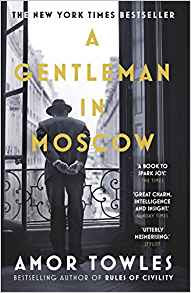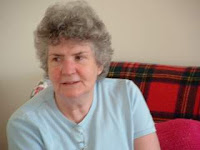"That’s what I like best, when writing historical fiction, lots of facts to draw on but a great big gap where you can create the story."
Mary Hoffman discusses her newly-reissued novel with Writers Review's Celia Rees.
Celia: David was originally published as YA, then re-published as an adult novel. Did you make any changes in the text to transition from YA to adult and where do you feel its real home lies?
Mary: It’s a tricky one. The original edition was published as YA, as you say, but reviewed in the UK press and on radio as an adult novel. My usual co-edition partners in Europe found it a bit too “adult” for their YA lists and I’m not convinced it was then seen by the adult editors and rights people in those publishing houses. We’ll never know. So I thought it should be re-issued with a better cover as as an adult novel. I made only minor changes to the text. I was told at the Bologna Book Fair this year that YA fiction is mainly read by 18-25-year-olds now anyway. So I think it may be that recent category “New Adult."
Celia: You have achieved remarkable success in a long writing career that has seen 90 books published for ages ranging from pre-school to Adult. What would your advice be to someone just starting out?
Mary: It’s 125 now! My first book was published 50 years ago, amazingly. But the publishing scene is so different now I don’t think my experiences would be relevant to someone just starting out. My advice based on what is going on now would be:
• Read widely. There was never a half-decent writer who wasn’t a voracious reader.
• Don’t give up the day job. The average annual earnings for a writer in the UK are £7K and that average is reached by including top sellers.
• Don’t write unless you must.
• Be professional, not a hobbyist, even when it is not your paid job.
• Be prepared to write many drafts.
• Try to get an agent; you will be more likely to be published if you have one.
Celia: You have an unusually wide range from picture books to adult novels. Do you have a favourite age to write for and what is your favourite genre?
Mary: What I like best is when the idea comes bringing its right length and format with it. I know now when an idea is going to be a picture book or a longer work of fiction but that took a while. My role model is the marvellous late New Zealand writer Margaret Mahy, who wrote from picture books to YA - all of the highest quality. I usually have more than one book on the go simultaneously, but whichever one I’m working on at the time is my favourite book and genre.
Celia: Your love of Italy shines through much of your YA and adult fiction. My favourites are your Stravaganza series, set in different Renaissance cities. Would you be tempted to write more of these novels, set in other cities?
Mary: I had outlines for a further six cities, characters and plots, but the publisher didn’t want more than the original six. Each book took nine months to a year to research and write and I needed a publisher’s advance to live on while I wrote them so self-publishing wasn’t an option.
Celia: Your love of Renaissance Florence and your ability to capture the life of the city are most evident in David. What made you want to write about the creation of one of the world’s most famous statues by one of the world’s most renowned artists? Did you ever feel in any way daunted by the task that you had set yourself?
Mary: Two things. I wanted to re-create the feeling of what it was like to see an iconic work of art for the first time. The Mona Lisa features in the book too, while it is being painted! And secondly, we have masses of information about the statue: the contract for it, the minutes of the committee meeting about where it should be placed, how it was moved from Michelangelo’s workshop to the Piazza della Signoria etc. But nothing at all abut the model, not even if there was one. That’s what I like best, when writing historical fiction, lots of facts to draw on but a great big gap where you can create the story.
Celia: Lastly, the inevitable question; would you care to share with us what you are working on now?
Mary: I don’t want to jinx it by revealing too much but I am about two chapters and an epilogue away from the end of the first draft of a historical novel for adults, set in the 14th century. Not Italy this time but England. I am obsessed with the Plantagenets and it is the first in a proposed trilogy. But it is uncommissioned, even though a senior Churchman believes in it so completely he has offered to host the (entirely notional) launch in his building in a certain Cathedral close! We shall see.
Most people of my age have retired but the “r” word is banned in our house. Remember what I advised about needing to write? It's who I am. I can’t imagine a day when I’m not writing, editing, proofreading, publicising or talking about books - oh yes, and reading them.
David: the Unauthorised Autobiography is published by Writers Review Publishing.
Celia's Miss Graham's War is published by Harper Collins - read the Q&A here.















































































